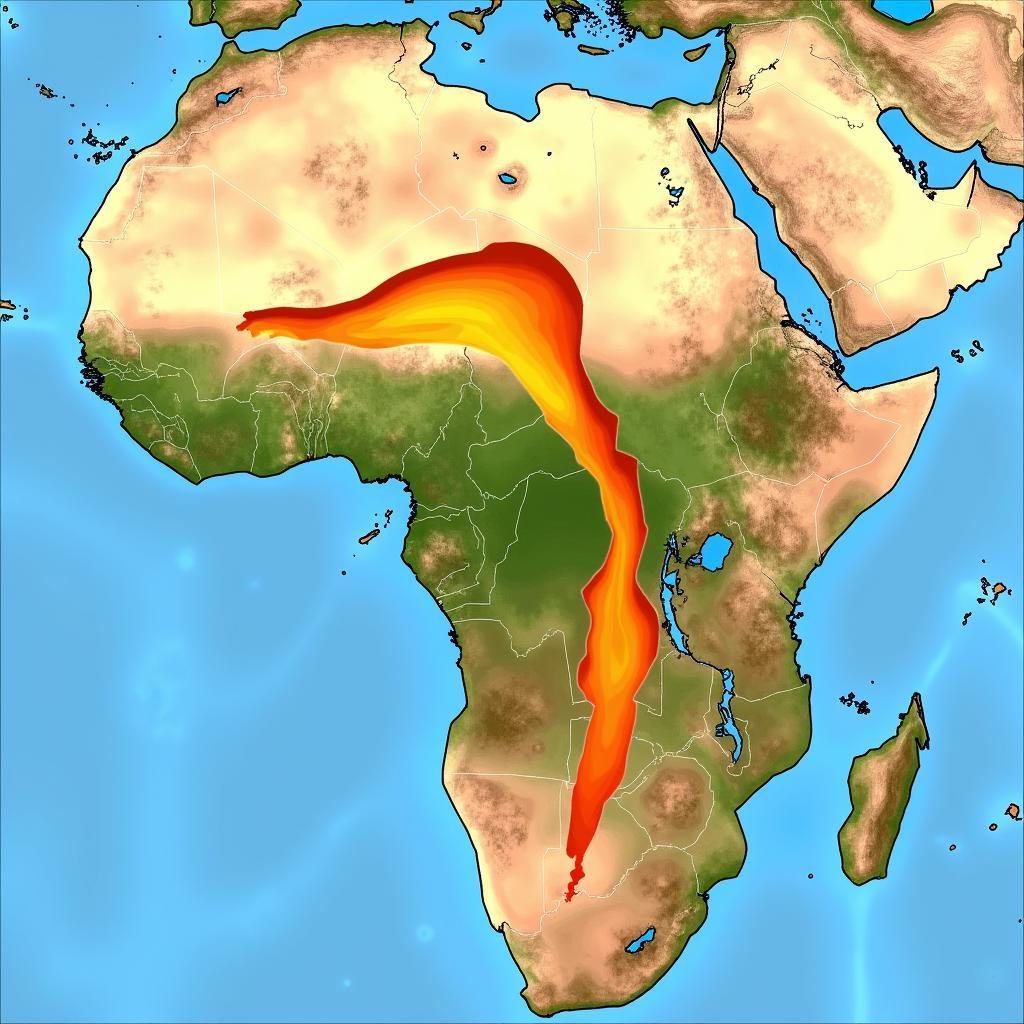Understanding the African Grey Temperature Range
Maintaining the correct African Grey Temperature Range is crucial for the health and well-being of these intelligent and sensitive birds. African greys, originating from the warm, humid climates of Central and West Africa, are not well-equipped to handle extreme temperature fluctuations. Understanding their ideal temperature range and how to maintain it within your home is paramount to responsible African grey parrot ownership.
Ideal Temperature for African Greys
What is the ideal African grey temperature range? These parrots thrive in temperatures between 70-80°F (21-27°C). Temperatures consistently below 65°F (18°C) can be dangerous and potentially fatal for African greys, making them susceptible to respiratory infections and hypothermia. Similarly, excessively high temperatures exceeding 90°F (32°C) can lead to heatstroke and other heat-related illnesses.
Dangers of Temperature Fluctuations for African Greys
Why is the African grey temperature range so important? Sudden and drastic changes in temperature can severely stress an African grey, weakening their immune system and making them more vulnerable to diseases. Just as we humans feel uncomfortable in extreme weather conditions, African greys also experience discomfort and stress when exposed to temperatures outside their ideal range. This stress can manifest in various behavioral changes such as feather plucking, decreased appetite, and lethargy.
Maintaining the Right Temperature for Your African Grey
How can you ensure the correct African grey temperature range in your home? Several practical steps can help you create a comfortable and safe environment for your feathered companion. Maintaining a stable room temperature within the ideal range is the first crucial step. During colder months, consider using a thermostat-controlled heater to maintain the warmth, and in warmer months, an air conditioner or fan can help prevent overheating. Avoid placing your African grey’s cage in drafty areas or near windows where temperatures can fluctuate significantly.
You can also find more information about African grey care in our article about african grey parrot husbandry.
Protecting Your African Grey from Extreme Temperatures
Beyond maintaining a consistent room temperature, other measures can further protect your African grey from temperature extremes. Providing your bird with a warm, cozy sleeping area within its cage can offer extra comfort during colder nights. Consider using a heated perch or a bird-safe heating pad, but always ensure it’s thermostatically controlled to prevent burns. Remember, African Greys can overheat just like humans, so access to shade and a shallow dish of water for bathing can be helpful during hotter periods.
Additionally, understanding African culture can give insights into their original habitat. Check out our article on african lamp for more information.
Conclusion
Maintaining the correct African grey temperature range is essential for your parrot’s health and happiness. By understanding their needs and taking proactive steps to create a comfortable environment, you can ensure your African grey thrives. Remember, providing a stable and appropriate temperature is a key aspect of responsible African grey ownership.
Learn more about other African animals, like the african king snake, or the fascinating african house snake morphs. You can also discover interesting facts about the african grey parrot feather.
FAQ:
- What is the ideal temperature range for an African Grey parrot? (70-80°F / 21-27°C)
- What are the signs of heatstroke in African Greys? (Rapid breathing, panting, weakness, lethargy)
- Can I use a space heater to keep my African Grey warm? (Yes, but it must be thermostatically controlled and bird-safe)
- How can I protect my African Grey from drafts? (Avoid placing the cage near windows or doorways)
- What should I do if my African Grey is shivering? (Move it to a warmer location and consult a veterinarian)
- Can African Greys tolerate temperatures below 65°F? (No, prolonged exposure to cold temperatures can be dangerous)
- How can I help my African Grey stay cool in hot weather? (Provide shade, a shallow dish of water for bathing, and ensure good ventilation)
For any assistance, please contact us:
Phone: +255768904061
Email: kaka.mag@gmail.com
Address: Mbarali DC Mawindi, Kangaga, Tanzania
We have a 24/7 customer support team.

